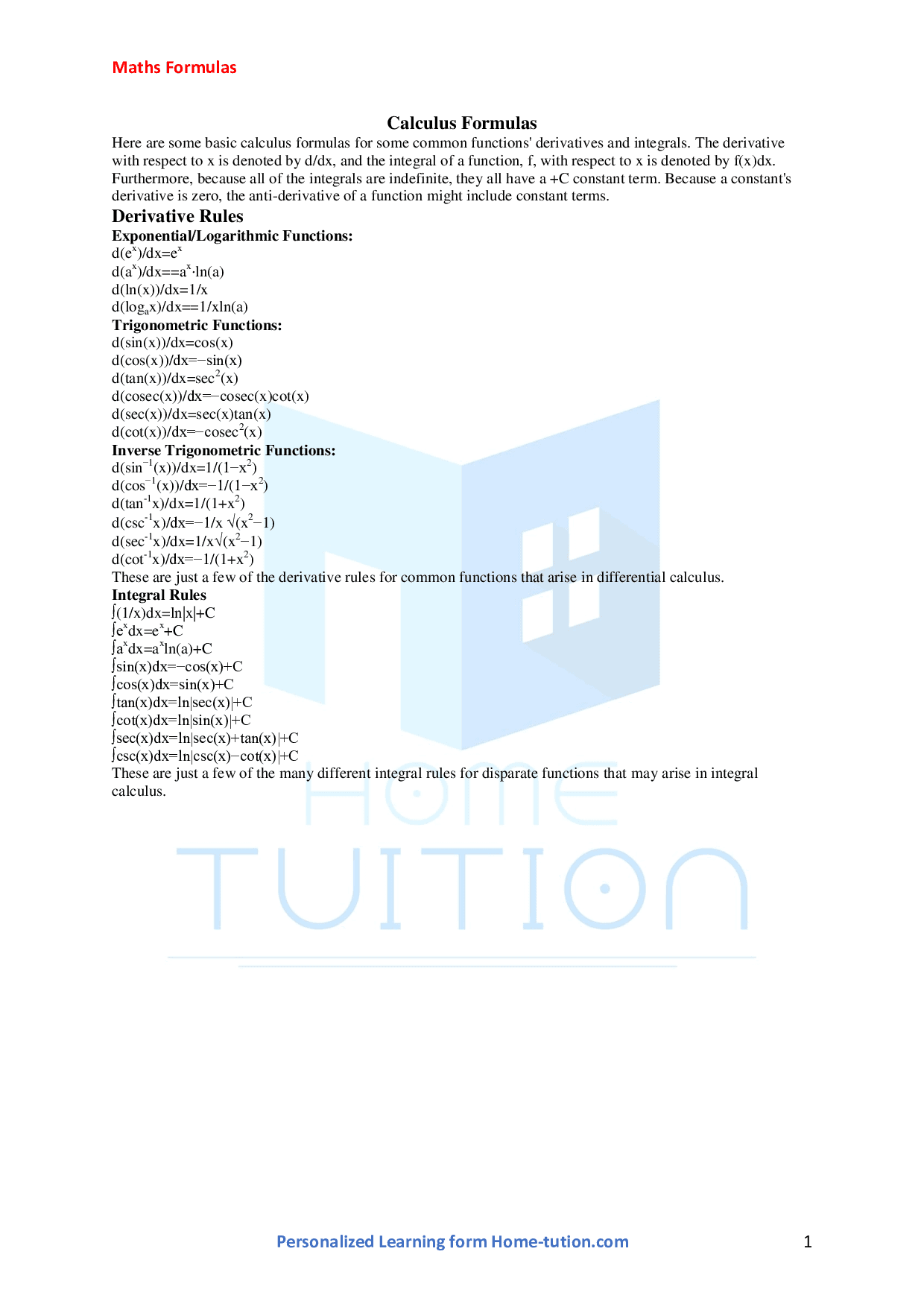About Calculus Formulas
Here are some basic calculus formulas for some common functions' derivatives and integrals. The derivative with respect to x is denoted by d/dx, and the integral of a function, f, with respect to x is denoted by f(x)dx. Furthermore, because all of the integrals are indefinite, they all have a +C constant term. Because a constant's derivative is zero, the anti-derivative of a function might include constant terms.
Derivative Rules
- Exponential/Logarithmic Functions:
- d(ex)/dx=ex
- d(ax)/dx=ax⋅ln(a)
- d(ln(x))/dx=1/x
- d(logax)/dx=1/xln(a)
- Trigonometric Functions:
- d(sin(x))/dx=cos(x)
- d(cos(x))/dx=−sin(x)
- d(tan(x))/dx=sec2(x)
- d(cosec(x))/dx=−cosec(x)cot(x)
- d(sec(x))/dx=sec(x)tan(x)
- d(cot(x))/dx=−cosec2(x)
- Inverse Trigonometric Functions:
- d(sin−1(x))/dx=1/(1−x2)
- d(cos−1(x))/dx=−1/(1−x2)
- d(tan-1x)/dx=1/(1+x2)
- d(csc-1x)/dx=−1/x √(x2−1)
- d(sec-1x)/dx=1/x√(x2−1)
- d(cot-1x)/dx=−1/(1+x2)
- These are just a few of the derivative rules for common functions that arise in differential calculus.
- Integral Rules
- ∫(1/x)dx=ln|x|+C
- ∫exdx=ex+C
- ∫axdx=axln(a)+C
- ∫sin(x)dx=−cos(x)+C
- ∫cos(x)dx=sin(x)+C
- ∫tan(x)dx=ln|sec(x)|+C
- ∫cot(x)dx=ln|sin(x)|+C
- ∫sec(x)dx=ln|sec(x)+tan(x)|+C
- ∫csc(x)dx=ln|csc(x)−cot(x)|+C
These are just a few of the many different integral rules for disparate functions that may arise in integral calculus.

To get all the Maths formulas check out the main page.

